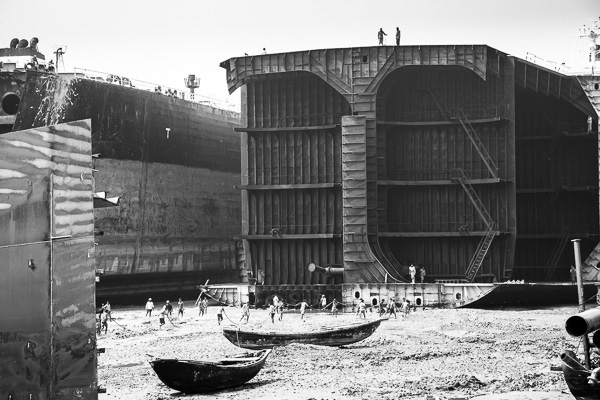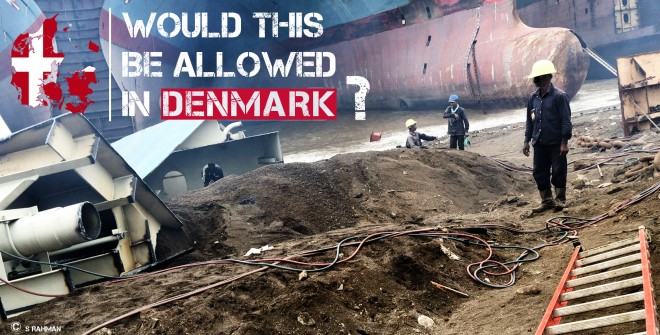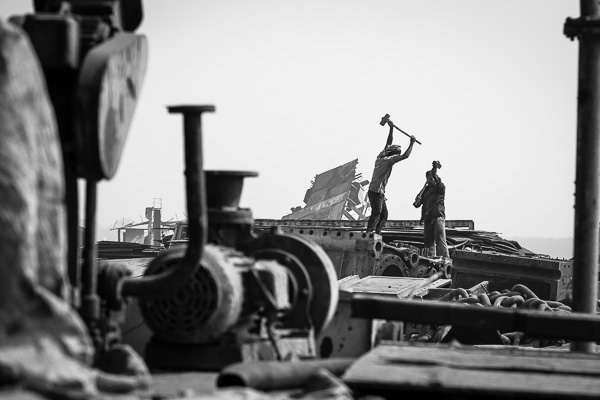Platform calls for responsible solution for Berge Stahl, flag ship of the Port of Rotterdam
The Berge Stahl, one of the world’s largest iron ore bulkers, made its last visit at the Port of Rotterdam last week. The NGO Shipbreaking Platform calls on the ship owner, Berge Bulk, and the Dutch authorities to ensure the responsible recycling of the 30 year old vessel. Berge Bulk, founded and lead by James Marshall and headquartered in Singapore, is one of the world’s largest operators of dry bulkers and has recently sold several of its end-of-life ships to substandard shipbreaking yards on the beaches of South Asia. At least two workers were killed and four more injured at Seiko Steel shipbreaking yard in Bangladesh earlier this year while the bulker company’s Berge Matterhorn was under demolition there. The Berge Stahl has called at Rotterdam’s ore terminal 249 times over the last 25 years. It was for a long time the largest dry bulk vessel in the world and considered to be the Port of Rotterdam’s unofficial ‘flag ship’. The Port of Rotterdam bid farewell to its iconic ship last week.

Apart from the fatal and severe accidents at the yard that was cutting down the Berge Matterhorn in Bangladesh, the Berge Vik and the Berge Prosperity ended up on the beaches of Gadani, Pakistan, in May last year. The destination has recently been shaken by the worst explosion in the history of the shipbreaking industry that resulted in at least 28 workers dead and more than 50 men severely injured.
Given the age of the vessel and the current low freight rates, experts assume that the Berge Stahl is soon going for demolition. When the vessel arrived in Rotterdam, the Platform alerted the Dutch authorities to ensure that the ship, which becomes hazardous waste under European and international environmental law once there is an intent to sell it for scrap, will not be illegally exported to the infamous shipbreaking beaches of India, Pakistan or Bangladesh. While the authorities have taken the case very seriously, Berge Bulk was able to reassure them that the vessel will continue to be operated and will go for dry docking in China. The Platform is now closely monitoring every move of the ship.





